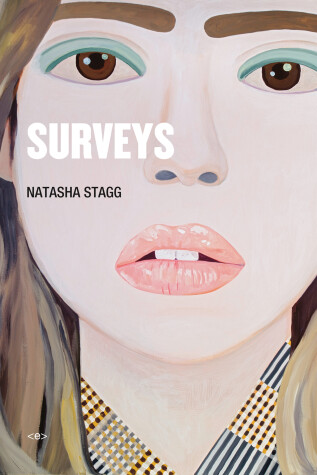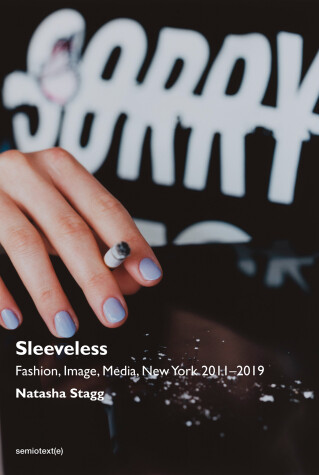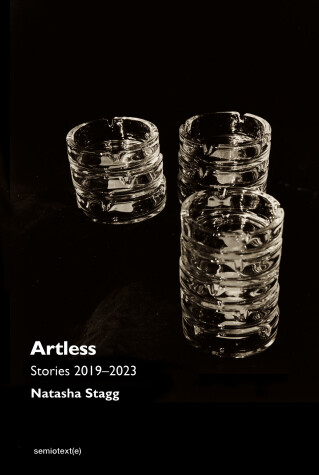Semiotext(e) / Native Agents
3 total works
One day, I was not famous, the next day, I was almost famous and the temptation to go wide with that and reject my past was too great. When I was legit famous, it was hard to tell when the change had occurred... If I had been born famous, the moment I would have started engaging in social media, I would have seen this fame, not the rise of it. But first I saw the low numbers, and later, the high ones.
—from Surveys
Wryly mirroring the classic, female coming-of-age narrative, Natasha Stagg's debut traces a few months in the life of Colleen, a twenty-three-year-old woman with almost no attachments or aspirations for her life. Working at an unsatisfying mall job in Tucson, Colleen sleepwalks through depressing office politics and tiresome one-night stands in a desultory way, becoming fully alive only at night when she's online. Colleen attains ambiguous Internet stardom when she's discovered by Jim, a semi-famous icon of masculinity and reclusiveness.
When Colleen quits her job and moves to meet Jim in Los Angeles, she immediately falls in love and begins a new life of whirlwind parties and sponsored events. The pair's relationship, launched online, makes them the Scott and Zelda of their generation, and they tour the country, cashing in on the buzz surrounding their romance. But as their fame expands, Colleen's jealousy grows obsessive.
Essays and stories on fashion, art, and culture in the New York of the 2010s.
We were supposed to meet Rose McGowan at Cafe d'Alsace after the party, but she cancelled at the last minute. I saw on Twitter that she had been hit with a drug possession charge, which she insisted was a scheme to keep her Weinstein dirt quiet. I hadn't even read her Weinstein story...
I still wanted to know that the articles were being published, and in large quantities, but reading stories of abuse and humiliation was as stupefying as a hangover. I didn't feel empowered; I only felt more hopeless. I wanted to watch the patriarchy go up in flames, but I wasn't excited about what was being pitched to replace it. If we got all of it out in the open, what would we have left? My fear was that guilt would destroy the classics and there'd be no one left to fuck. All movies would be as low-budget and as puritanical as the stuff they play on Lifetime, all of New York would look like a Target ad, every book or article would be a cathartic tell-all, and I'd be sexually frustrated but too ashamed to hook up with assholes, or even to watch porn.
-from Sleeveless
Eve Babitz meets Roland Barthes in Sleeveless, Natasha Stagg's follow up to Surveys, her 2016 novel about internet fame. Composed of essays and stories commissioned by fashion, art, and culture magazines, Sleeveless is a scathing and sensitive report from New York in the 2010s. During those years, Stagg worked as an editor for V magazine and as a consultant, creating copy for fashion brands. Through these jobs, she met and interviewed countless industry luminaries, celebrities, and artists, and learned about the quickly evolving strategies of branding. In Sleeveless, she exposes the mechanics of personal identity and its monetization that propelled the narrator of Surveys from a mall job in Tucson to international travel and internet fame.
Composed of stories, fragmentary essays, and even press releases Stagg has been commissioned to write, Artless captures the media landscape lived and generated in New York during the past half decade. Since the 2016 publication of her debut novel Surveys, Stagg has positioned herself as an in-demand expert on—and critic of—the psychic experience of self-mythology within the cruelly optimistic metaverse of infinite branding. Part voyeur and part participant, Stagg continues her exploration of the branded identity and its elusive, bottomless desire for authenticity.


